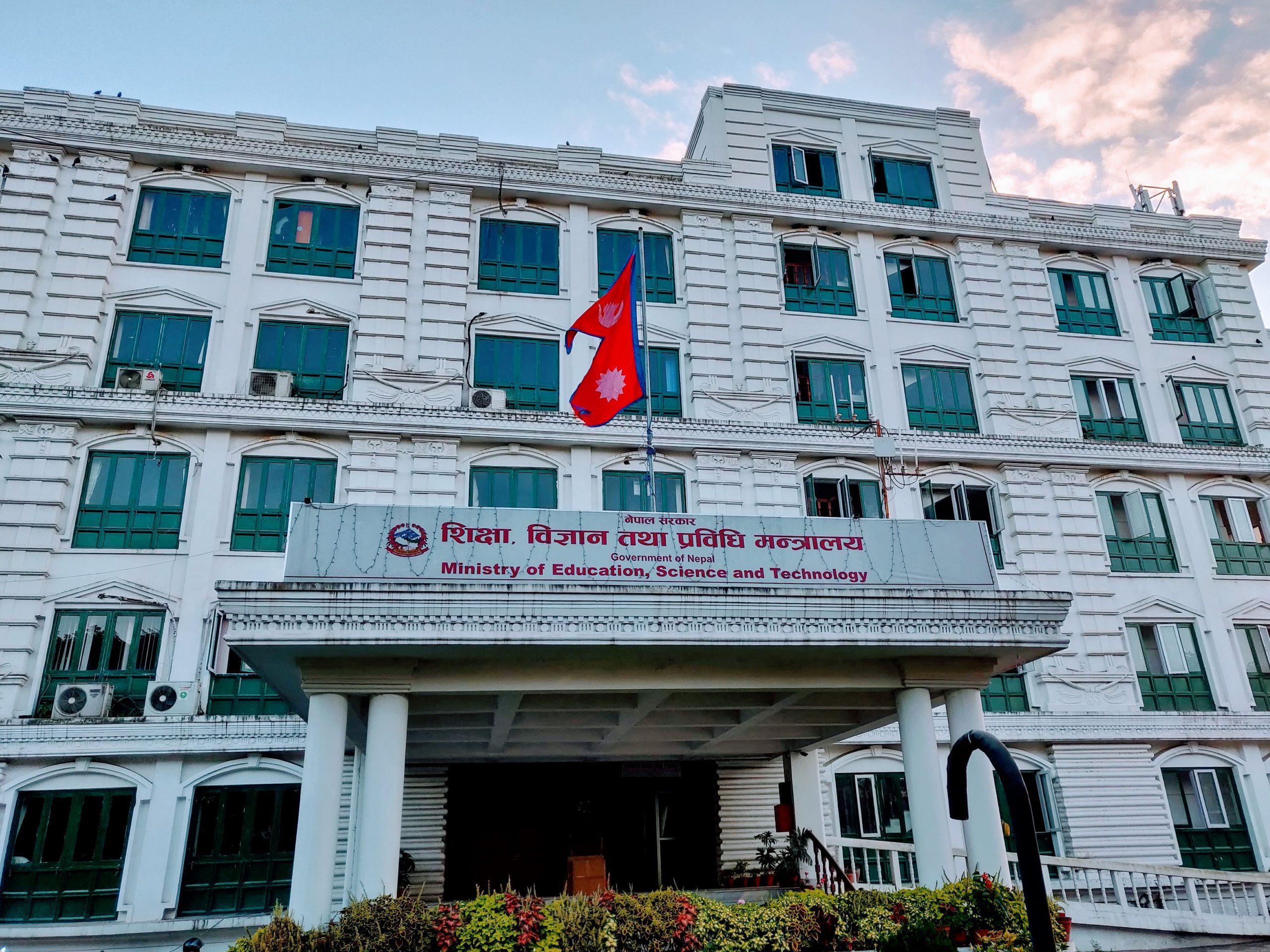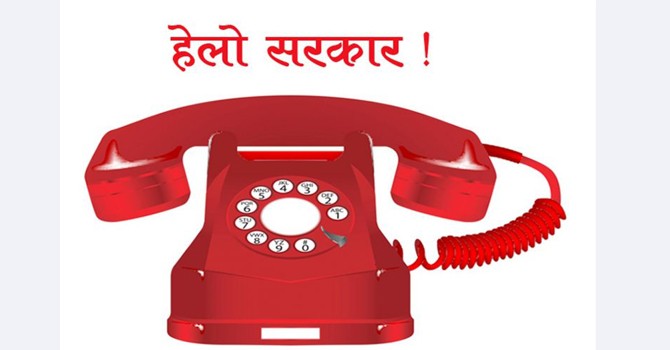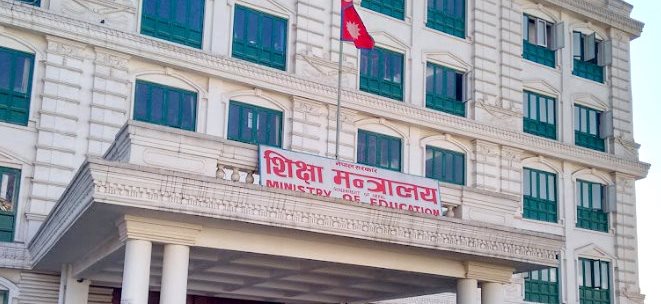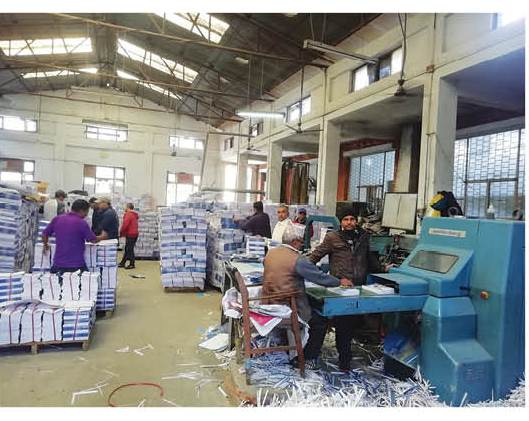Education reform programme fraught with problems

By Manjima Dhakal
Kathmandu, Nov. 23: President Education Reform Programme (Rastrapati Shaikshik Sudhar Kaaryakram) introduced by the Ministry for Education, Science and Technology (MOEST) two years ago has not been much effective as the programme failed to meet the actual needs of schools because of meager budget provided to build minimum infrastructure for the programme, stakeholders said.
Although the programme was introduced to reform public education across the country, stakeholders pointed out that the programme itself needs reform in some aspects.
The MoEST has selected 4,250 schools in fiscal year 2077/78 BS. The programme allocates budget for school building construction, ICT laboratory construction, libraries, school repairing and other titles.
Experts and teachers blamed that the programme failed to be effective because of scattering financial support. In many schools, the programme seems to be introduced only to draw votes for the political leaders. Therefore, the budget allocated for different topics is not sufficient to accomplish the work, school headmasters said.
“They gave Rs. 600,000 for ICT laboratory which was enough only to equip a single classroom,” said Kajiman Ekten, headmaster of Khandrung Secondary School of Deumai-7 in Ilam.
Moreover, many schools rejected the budget as they got the package for work other than its requirement. Prabhat Secondary School, Gwarko, Lalitpur had sought the programme for school’s repair and to buy materials for ICT lab, but the programme allocated the budget for building construction.
Rajendra Timilsina, headmaster of the school, said they did not accept the budget since they have no space at school for building construction. Some other schools also faced similar trouble while the ministry allocated budget under the title other than they had sought, said Timilsina.
Gita Ghimire, director of the Centre for Education and Human Resource Development (CEHRD), informed that out of 4,250 schools across the country, some schools did not accept the budget as they got the budget for programme different from their needs. She also said that many schools were unable to implement the programme because they opened only after mid-June and they had to accomplish the task by mid-July, within one month duration. Now, the CEHRD is collecting the details of schools which did not accept the programme, she informed.
Ghimire further said that despite some mistake, in most schools the programme allocated the budget for the desired task.
However, Ghimire denied the blame that the budget was insufficient and said the fixed budget was sufficient to accomplish the task.
But Heramba Kandel, headmaster of Vishwo Niketan Secondary School, Tripureshwor also suggested allocating budget for integrated programme rather than scattering it.
The selected schools have received between Rs. 650,000 to Rs. 10 million in funding. A grant of Rs. 1.8 million per two rooms has been allocated to construct school buildings with a minimum of two rooms and a maximum of four rooms. Other than the classrooms, the construction may be for the purpose of early childhood development centres, science laboratories, information technology (IT) laboratories, and libraries. A grant of Rs. 700,000 per school is provided to the schools that submit proposals for toilets. Similarly, Rs. 700,000 per school has been provided for the schools demanding drinking water.
According to the plan for infrastructural development to expand the usage of ICT in education, Rs. 50,000 per computer has been allocated. Similarly, schools get a grant of Rs. 650,000 for lab
equipment.
In the fiscal year 2077/78 BS, the government has set aside Rs. 5.6 billion from the total budget for different programmes to complete the scheme within the current academic session. Likewise, the government has allocated about Rs. 8 billion for the programme this year.
It is likely to be delayed even in this while the ministry has yet to call for applications from schools for the programme. If the ministry does not start the process soon, again many schools can’t accept the programme due to insufficient time.
Recent News

Do not make expressions casting dout on election: EC
14 Apr, 2022
CM Bhatta says may New Year 2079 BS inspire positive thinking
14 Apr, 2022
Three new cases, 44 recoveries in 24 hours
14 Apr, 2022
689 climbers of 84 teams so far acquire permits for climbing various peaks this spring season
14 Apr, 2022
How the rising cost of living crisis is impacting Nepal
14 Apr, 2022
US military confirms an interstellar meteor collided with Earth
14 Apr, 2022
Valneva Covid vaccine approved for use in UK
14 Apr, 2022
Chair Prachanda highlights need of unity among Maoist, Communist forces
14 Apr, 2022
Ranbir Kapoor and Alia Bhatt: Bollywood toasts star couple on wedding
14 Apr, 2022
President Bhandari confers decorations (Photo Feature)
14 Apr, 2022









